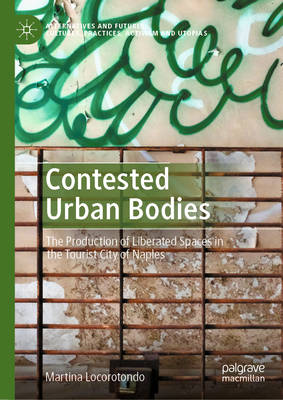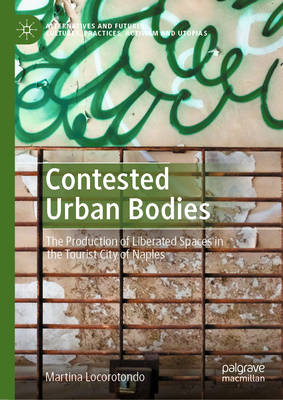
- Afhalen na 1 uur in een winkel met voorraad
- Gratis thuislevering in België vanaf € 30
- Ruim aanbod met 7 miljoen producten
- Afhalen na 1 uur in een winkel met voorraad
- Gratis thuislevering in België vanaf € 30
- Ruim aanbod met 7 miljoen producten
Contested Urban Bodies
The Production of Liberated Spaces in the Tourist City of Naples
Martina LocorotondoOmschrijving
The historic centre of the southern European city of Naples has been shaped by opposing urban processes throughout the 2010s and into the 2020s. On the one hand, touristification has led to the financialisation of housing, the displacement of inhabitants and everyday commerce, and the enclosure of public space. On the other, the proliferation of commoning practices by the Liberated Spaces or Beni Comuni--and the parallel experimentation with a distinctive form of new municipalism--has reclaimed urban space for collective use and social functions. The Liberated Spaces are a network of communities that have emerged since 2012 through the occupation and reappropriation of abandoned public buildings. Today, they are self-governed by inhabitants through assemblies.
Through in-depth ethnographic research with these communities, this book explores the everyday production of liberated spaces in the heart of the tourist zone. Moving from the bodies of activists to the body of the city and back, and with an eye to its past histories as recalled through the memories of its inhabitants, it traces the emergence of urban bodies contested between diverging trajectories and possible futures for Naples.
Specificaties
Betrokkenen
- Auteur(s):
- Uitgeverij:
Inhoud
- Aantal bladzijden:
- 248
- Taal:
- Engels
- Reeks:
Eigenschappen
- Productcode (EAN):
- 9789819527045
- Verschijningsdatum:
- 20/01/2026
- Uitvoering:
- Hardcover
- Formaat:
- Genaaid
- Afmetingen:
- 148 mm x 210 mm

Alleen bij Standaard Boekhandel
Beoordelingen
We publiceren alleen reviews die voldoen aan de voorwaarden voor reviews. Bekijk onze voorwaarden voor reviews.








